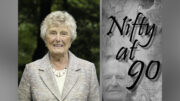The official McDonald’s Corp. company history refers to a 1954 visit to San Bernadino, Calif., by then-salesman Ray Kroc, who was stunned by the speedy, effective operation of “a small but successful restaurant” run by brothers Dick and Mac McDonald.
“They were looking for a new agent, and Kroc saw an opportunity,” according to the fast food giant’s website.
Just how the legendary Mr. Kroc embraced/explored/exploited that supposed opening — locking heads with and eventually plowing over the McDonald brothers — forms the basis for “The Founder.” The film stars Michael Keaton as the aggressive visionary who transformed the way people dine out worldwide, for better or worse.
‘The Founder’ Ratings explained
Starring: Michael Keaton, Nick Offerman, John Carroll Lynch.
Rating: PG-13 for brief strong language.
This would be a much less interesting story if families had spent the past six decades visiting a Kroc’s instead of McDonald’s for quick, low-cost, assembly-line food prepared under strict control standards for eating sans utensils (hence no need for a costly, time-consuming dishwasher). But there was never a Kroc’s. Though his is the name most associated with the McDonald’s empire even long after his 1984 death, the concept belonged to siblings we’ve heard much less about (other than for their name being plastered every few miles across America).
“The Founder” focuses on the 1954-61 span during which Mr. Kroc went from meeting and admiring Dick and Mac McDonald to partnering in the franchise business with them to despising and buying them out — and possibly cheating them out of a fortune in the process (though the facts of that are murkier than the film suggests). If you’re thinking this sounds awfully similar to other modern films about forward-thinking, difficult gazillionaires (“The Social Network,” “Steve Jobs,” whoever’s first in line to make “The Donald,” etc.), you’re right, but that’s no reason to avoid making or seeing another good one.
Mr. Keaton is as glibly captivating as ever as the hard-drinking Midwesterner with shrewd instincts for where American consumerism was headed in the mid-20th century. The movie is hurt somewhat, however, by: a) how generally unsympathetic his character is b) how little of his overall background or story is explained. We know him mostly as a guy enamored with the idea of franchising — “Franchise! Franchise! Franchise! Franchise!” he shouts to the brothers at one point — who has an unhappy domestic situation with his cardboard character of a first wife (Laura Dern).
Playing very well off him, however, are terrific character actors Nick Offerman as McDonald brother Dick and John Carroll Lynch as brother Mac. They portray an endearing duo combining small-business savvy with integrity and care for their customers. A highlight of the film is their exuberant, detailed description via montage of the McDonald’s concept and first restaurant.
// //
Mr. Kroc is raptly incredulous himself: “This thing — it’s too good for one location!”
He’s persuasive, of course, and that leads to a series of openings under the Golden Arches (Dick’s design idea, not Ray’s) followed by financial disagreements, tussles over quality (e.g. use of powdered milkshakes to avoid freezer costs), angry cross-country phone calls, snarling letters and the ultimate split.
These testy exchanges become somewhat redundant in terms of the viewer’s need, like someone trying to order a second order of french fries for himself, but the whole thing ends up an entertaining education about origins of one of the more shared settings of American life. Just like for those who saw the 2004 documentary “Super Size Me,” if you walk into one of the 36,000 McDonald’s locations afterward there’s a good chance you’ll look at the place differently.









































